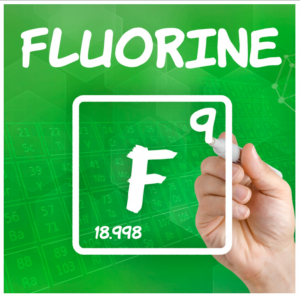Dr. Ellis on FOX2 Talking About National Toothbrush Day!
Know the Facts about Fluoride
 Most people aren’t aware that their tooth enamel is constantly changing. On a daily basis important minerals that make up a tooth’s enamel layer are lost through demineralization. Mouth bacteria interacts with certain proteins and sugars causing acid to form and erode the enamel. Then at the same time other minerals such as calcium, phosphate and fluoride are being deposited back on the tooth surface through what we eat and drink. Obviously when there is more demineralization than remineralization, the tooth enamel becomes weak and cavities and tooth decay can occur. Past studies have determined that while fluoride can protect teeth from demineralization, it can also remineralize some of the damaged areas.
Sufficient amounts of fluoride are critical for children beginning at the age of six months. This is when both primary and permanent teeth are developing and fluoride is absorbed into the tooth hidden under the gum. Then after the tooth erupts fluoride acts as a barrier against damaging acids. However, care must be taken against high concentrations of fluoride as this can cause negative effects on tooth enamel. Your dentist can easily gauge the correct amount of fluoride depending on your child’s age and weight.
Most people aren’t aware that their tooth enamel is constantly changing. On a daily basis important minerals that make up a tooth’s enamel layer are lost through demineralization. Mouth bacteria interacts with certain proteins and sugars causing acid to form and erode the enamel. Then at the same time other minerals such as calcium, phosphate and fluoride are being deposited back on the tooth surface through what we eat and drink. Obviously when there is more demineralization than remineralization, the tooth enamel becomes weak and cavities and tooth decay can occur. Past studies have determined that while fluoride can protect teeth from demineralization, it can also remineralize some of the damaged areas.
Sufficient amounts of fluoride are critical for children beginning at the age of six months. This is when both primary and permanent teeth are developing and fluoride is absorbed into the tooth hidden under the gum. Then after the tooth erupts fluoride acts as a barrier against damaging acids. However, care must be taken against high concentrations of fluoride as this can cause negative effects on tooth enamel. Your dentist can easily gauge the correct amount of fluoride depending on your child’s age and weight.
Adults can also benefit from additional fluoride especially if dry mouth is a concern. Often certain medications, diseases or side effects from medical treatments can cause a lack of saliva allowing harmful bacteria to form. Also, if you suffer from gingivitis where more of the tooth is exposed or have crowns, bridges or braces, sufficient fluoride is important. Adding a fluoride rinse to your daily brushing even when using fluoride toothpaste is one of the easiest ways to make sure your teeth are protected.
As always, we here at Ellis Dental welcome your questions and concerns. Please don’t hesitate to reach out if you’d like more information on fluoride and your dental health.


